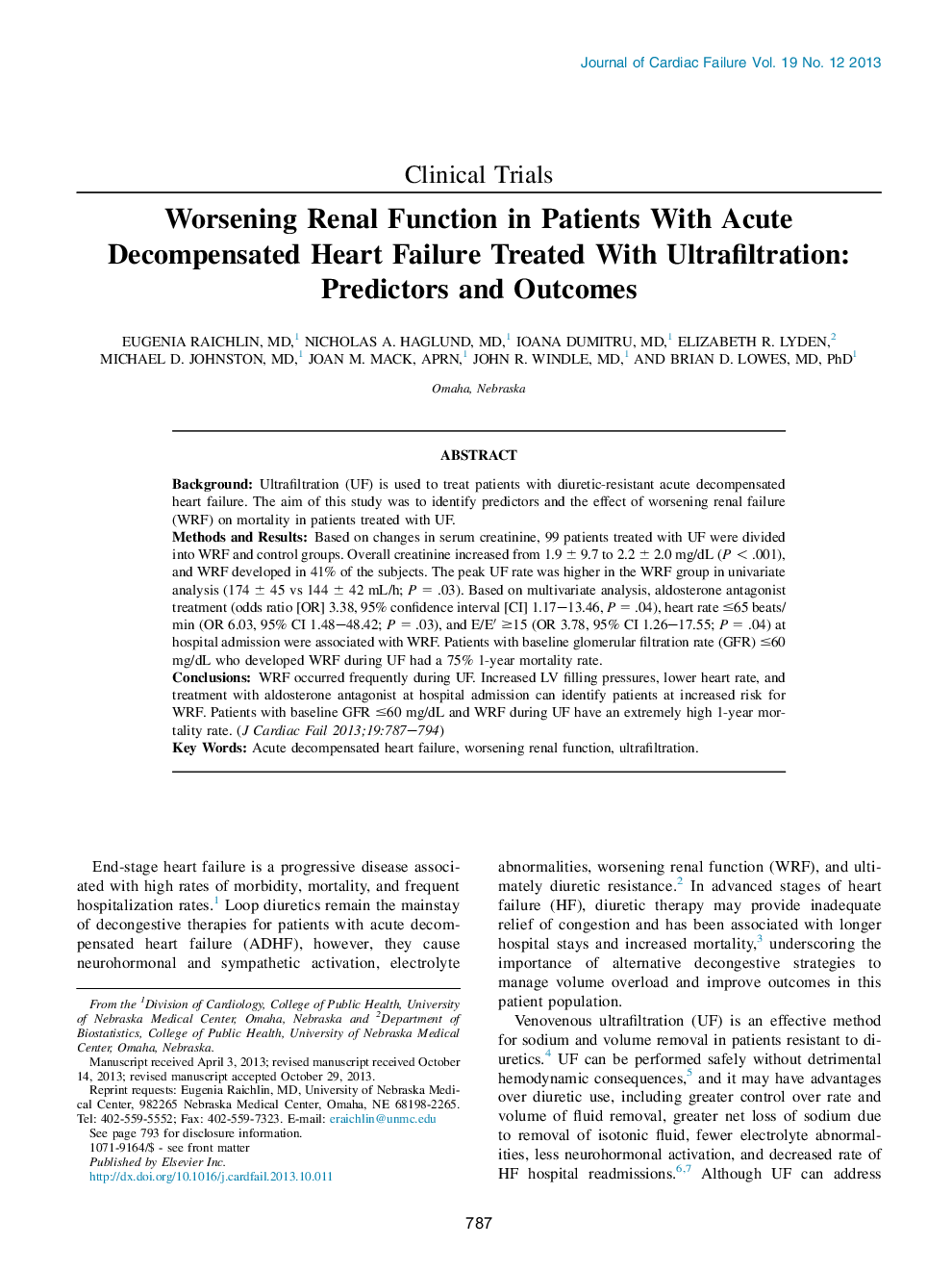| Article ID | Journal | Published Year | Pages | File Type |
|---|---|---|---|---|
| 2959996 | Journal of Cardiac Failure | 2013 | 8 Pages |
BackgroundUltrafiltration (UF) is used to treat patients with diuretic-resistant acute decompensated heart failure. The aim of this study was to identify predictors and the effect of worsening renal failure (WRF) on mortality in patients treated with UF.Methods and ResultsBased on changes in serum creatinine, 99 patients treated with UF were divided into WRF and control groups. Overall creatinine increased from 1.9 ± 9.7 to 2.2 ± 2.0 mg/dL (P < .001), and WRF developed in 41% of the subjects. The peak UF rate was higher in the WRF group in univariate analysis (174 ± 45 vs 144 ± 42 mL/h; P = .03). Based on multivariate analysis, aldosterone antagonist treatment (odds ratio [OR] 3.38, 95% confidence interval [CI] 1.17–13.46, P = .04), heart rate ≤65 beats/min (OR 6.03, 95% CI 1.48–48.42; P = .03), and E/E′ ≥15 (OR 3.78, 95% CI 1.26–17.55; P = .04) at hospital admission were associated with WRF. Patients with baseline glomerular filtration rate (GFR) ≤60 mg/dL who developed WRF during UF had a 75% 1-year mortality rate.ConclusionsWRF occurred frequently during UF. Increased LV filling pressures, lower heart rate, and treatment with aldosterone antagonist at hospital admission can identify patients at increased risk for WRF. Patients with baseline GFR ≤60 mg/dL and WRF during UF have an extremely high 1-year mortality rate.
